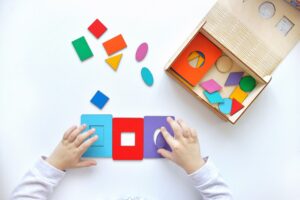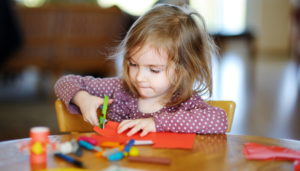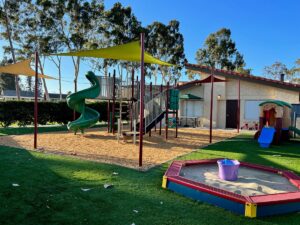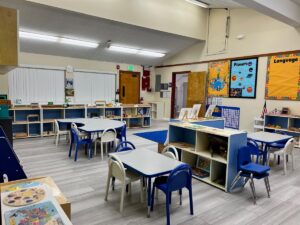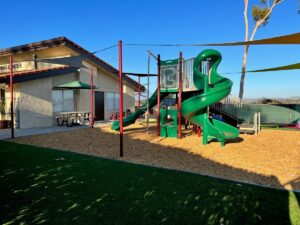Unlocking the Magic of Montessori Exercises: A Journey of Learning and Independence
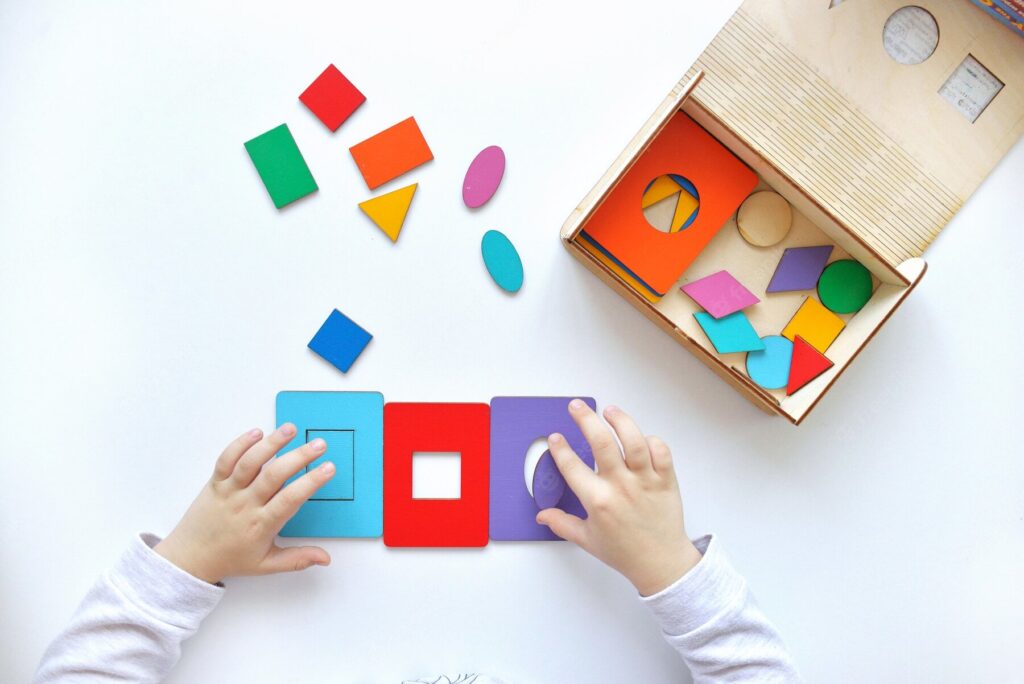
The Montessori method of education, developed by Dr. Maria Montessori, has been transforming the way children learn for over a century. At the heart of this innovative approach are Montessori exercises, which play a pivotal role in nurturing a child’s independence, self-confidence, and love for learning. In this blog, we’ll delve into the fascinating world of Montessori exercises, exploring their principles, benefits, and some examples to inspire you on your journey toward fostering a more independent and self-sufficient child.
Understanding Montessori Exercises
Montessori exercises are carefully designed activities and materials that cater to a child’s natural curiosity, enabling them to explore and learn at their own pace. These exercises are grounded in the philosophy that children are inherently motivated to learn and develop when given the freedom to choose their activities within a prepared environment. Here are some key principles that guide Montessori exercises:
- Child-Centered Learning: Montessori exercises revolve around the child’s interests and needs. They allow children to choose activities that capture their attention, ensuring that learning is engaging and enjoyable.
- Independence: Montessori exercises are designed to be self-directed, allowing children to work independently. This fosters a sense of responsibility and self-confidence as they complete tasks on their own.
- Order and Organization: The Montessori environment is meticulously organized, with materials placed on low shelves within easy reach of children. This promotes orderliness and teaches children to tidy up after themselves.
- Concrete Learning: Montessori exercises often involve tangible, hands-on materials that help children grasp abstract concepts through concrete experiences. This approach enhances understanding and retention.
- Freedom Within Limits: While children have the freedom to choose their activities, they do so within certain limits set by the prepared environment and the teacher’s guidance. This balance ensures safety and structure.
Benefits of Montessori Exercises
Montessori exercises offer a multitude of benefits for children’s holistic development:
- Academic Excellence: Montessori exercises lay a strong foundation for academic skills such as literacy, numeracy, and science. Children develop a deep understanding of concepts through hands-on exploration.
- Critical Thinking: By allowing children to problem-solve independently, Montessori exercises nurture critical thinking and problem-solving skills from an early age.
- Self-Discipline: The freedom to choose and complete activities independently instills self-discipline and a strong work ethic.
- Social Skills: Montessori exercises encourage cooperation, respect for others, and conflict resolution, promoting positive social interactions.
- Confidence and Self-Esteem: Children gain a sense of accomplishment and confidence as they master new skills and complete tasks on their own.
Examples of Montessori Exercises
Now, let’s explore some concrete examples of Montessori exercises:
- Practical Life Activities: These exercises include tasks like pouring water, buttoning shirts, or polishing objects. They teach children essential life skills and fine motor coordination.
- Sensorial Materials: Sensorial exercises focus on refining the senses through activities like matching colors, grading sizes, or distinguishing textures. These activities enhance sensory perception and discrimination.
- Math Materials: Montessori math exercises use materials like the Montessori Number Rods and the Golden Beads to teach concepts such as numeration, addition, subtraction, multiplication, and division in a hands-on manner.
- Language Materials: Montessori language exercises include the Sandpaper Letters and the Moveable Alphabet, which help children develop reading and writing skills through tactile and phonetic experiences.
- Cultural Materials: Geography, history, botany, and zoology are explored through Montessori cultural materials like puzzle maps, timelines, and nomenclature cards, fostering a love for the world and its diversity.
Montessori exercises are at the core of the Montessori method, offering children the opportunity to learn and grow in a nurturing, self-directed environment. These exercises not only support academic development but also instill crucial life skills, independence, and a lifelong love for learning. By embracing the principles and practices of Montessori education, we empower our children to become confident, capable, and curious individuals who are well-prepared to navigate the complexities of the world.
Embrace the Sun: Best Montessori Activities for an Enriching Summer

Summer is a time of endless exploration and discovery for young minds, and what better way to nurture their growth than with Montessori-inspired activities? Montessori principles are based on fostering independence, creativity, and hands-on learning. As the warm sun graces us with its presence, let’s dive into some of the best Montessori activities that will keep your child engaged, stimulated, and inspired throughout the summer months.
1. Nature Walks and Scavenger Hunts:
Summer provides the perfect opportunity to explore the great outdoors. Take your little explorer on nature walks to observe the wonders of the natural world. Create a scavenger hunt list with items such as pinecones, colorful flowers, and interesting rocks. Encourage them to collect these treasures in a basket and discuss their findings later.
2. Planting and Gardening:
Montessori education emphasizes connecting children with nature. Get your child involved in planting and caring for a small garden. Let them experience the joy of watching their plants grow and teach them the responsibility of nurturing living things.
3. Water Play:
When the temperature rises, water play is an absolute must! Set up a water table with cups, funnels, and water toys for sensory play. Not only is it refreshing, but it also enhances their fine motor skills and encourages cooperative play with friends or siblings.
4. Outdoor Art Studio:
Unleash your child’s creativity with an outdoor art studio. Lay out an easel, art supplies, and a variety of papers. Let them paint, draw, and create to their heart’s content while surrounded by the beauty of nature.
5. Practical Life Skills:
Summer is the ideal time to introduce practical life skills to your child. Involve them in simple tasks like washing fruits, setting up a picnic, or folding laundry. These activities not only foster independence but also instill a sense of accomplishment and self-confidence.
6. Cooking Adventures:
Engage your little chef in the kitchen with child-friendly cooking projects. Prepare simple recipes together, like fruit popsicles or homemade lemonade. Cooking provides an excellent opportunity to learn about measurements, ingredients, and healthy eating habits.
7. Stargazing and Nighttime Adventures:
Summer nights offer a magical experience for stargazing and observing nocturnal creatures. Set up a cozy spot with blankets and pillows to lie down and look at the stars. Use a constellation guide to identify different stars and constellations together.
8. Outdoor Yoga and Mindfulness:
Teach your child the art of relaxation and mindfulness with outdoor yoga sessions. Practice simple poses together and focus on deep breaths. This activity not only improves flexibility but also helps children develop self-awareness and emotional regulation.
This summer, embrace the Montessori philosophy and let your child’s imagination soar with these enriching activities. From exploring nature’s wonders to cultivating practical life skills, the season offers endless opportunities for growth and learning. By incorporating these activities into their daily routine, you’ll be nurturing their sense of wonder and independence while creating lasting memories together. Happy summer of discovery and exploration!
Why Montessori learning stands out as a superior approach

Montessori learning stands out as a superior educational approach, surpassing traditional learning methods in several crucial aspects. Unlike the rigid structure of traditional classrooms, Montessori fosters a child-centric environment that allows for personalized, self-directed learning. In Montessori settings, children are empowered to explore their interests and learn at their own pace, unlocking their innate curiosity and passion for knowledge.
The Montessori approach emphasizes hands-on, experiential learning, enabling children to engage with concrete materials that develop their understanding of abstract concepts. This active learning process ensures a deeper understanding and retention of knowledge compared to passive listening in traditional settings.
Moreover, Montessori classrooms promote the development of essential life skills, including problem-solving, critical thinking, and self-discipline. These skills go beyond memorization and standardized testing, preparing children to adapt and thrive in an ever-changing world.
Furthermore, the multi-age classrooms in Montessori settings encourage peer-to-peer learning, fostering collaboration, empathy, and a strong sense of community. Younger children learn from their older peers, while older students reinforce their knowledge by teaching and guiding their younger counterparts.
In Montessori learning, the role of the teacher transforms into that of a facilitator and mentor, providing individualized support and guidance to each child’s unique learning journey. This personalized attention nurtures a love for learning and builds a strong foundation for future academic and personal success.
In conclusion, Montessori learning excels over traditional methods by cultivating independent, creative, and well-rounded individuals. Its focus on personalized learning, hands-on experiences, and life skills development empowers children to become confident, curious, and lifelong learners. By embracing Montessori education, we are investing in a brighter and more innovative future for our children.
Common Misconceptions about Montessori Education

Montessori education is an approach to learning that emphasizes hands-on activities, self-directed learning, and a focus on the individual needs of each child. Despite the popularity of Montessori schools, there are several common misconceptions about this approach to education.
One misconception is that Montessori education is only for gifted children or those who are already advanced learners. In fact, Montessori education is designed to meet the needs of all children, regardless of their abilities or learning styles.
Another misconception is that Montessori schools do not provide structure or discipline. However, Montessori schools actually have a strong emphasis on order, routine, and consistency, which helps children feel secure and confident.
Some people also believe that Montessori education does not prepare children for the real world, since it does not focus on traditional academic subjects like math and reading in the early years. However, Montessori schools do introduce these subjects in a developmentally appropriate way, and the emphasis on practical life skills and problem-solving can actually help children become better prepared for the challenges they will face in the future.
Finally, some people believe that Montessori education is expensive and elitist. While it is true that some Montessori schools can be expensive, there are also many public and non-profit Montessori schools that are affordable and accessible to families from all backgrounds.
Overall, while there are some misconceptions about Montessori education, it is a valuable and effective approach to learning that can benefit children of all ages and abilities.
